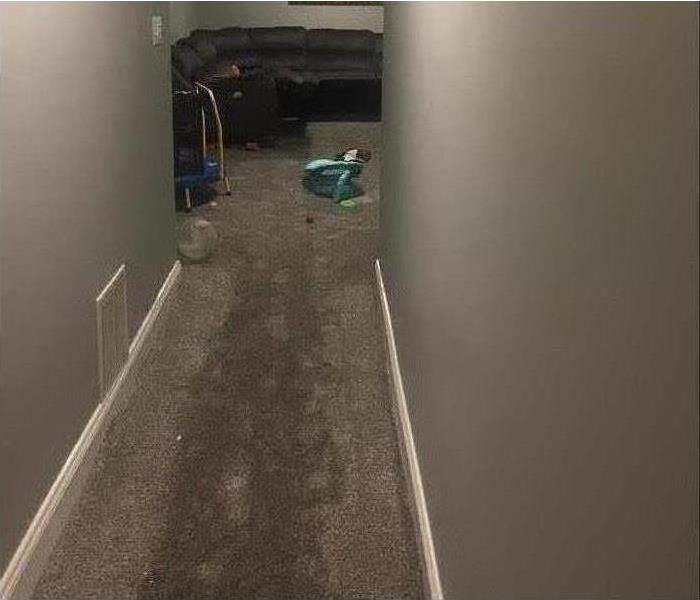4 Things To Do When Your Basement Floods
6/22/2021 (Permalink)
How Should You Deal With Standing Water In Your Basement?
The last thing you want to find in your Palmer Township, PA, home is a flooded basement. However, after a big storm, pipe burst or sewage backup, you may have to deal with this catastrophe.
1. Call in the Professionals: As a homeowner, you may try to take care of some projects on your own. Dealing with standing water in any part of your home requires expertise. A professional residential flood remediation team can help you figure out the best repair plan that falls under your insurance coverage.
2. Remove Standing Water: The professionals will work hard to remove standing water from your home. A basement flood should be drained before anyone enters the lower levels of your home. Make sure the electricity to the basement is turned off before anyone goes into the water for added safety. In fact, it's best if the water is removed with a shop vac and other equipment that does not require someone to stand in the waters.
3. Salvage Content: Some of your belongings may be salvageable. Any nonporous materials can be cleaned and dried out. Other items, such as electronics and appliances, may need to be thrown away rather than saved. Let the experts help you clean your belongings so you can make sure everything is done right.
4. Prevent More Flooding: You do not want to have to deal with a basement flood regularly. To save yourself some hassle in the future, you should think about installing a sump pump. This equipment can help keep water from building up.
A basement flood can surprise you. You go to bed one night and wake up the next morning to find standing water in the lower levels of your house. Acting quickly can help you avoid mold growth and other secondary damage caused by standing water.





 24/7 Emergency Service
24/7 Emergency Service
